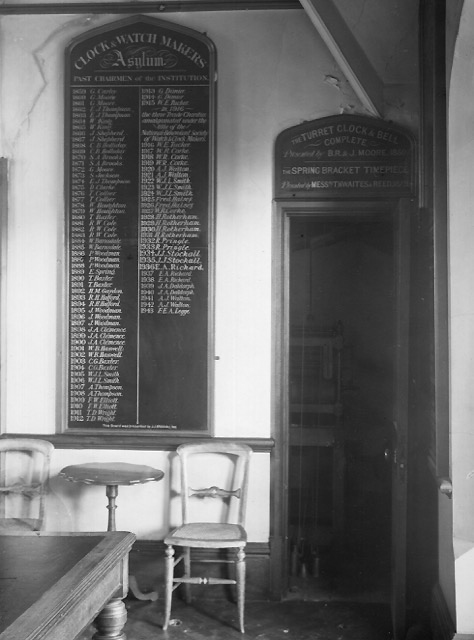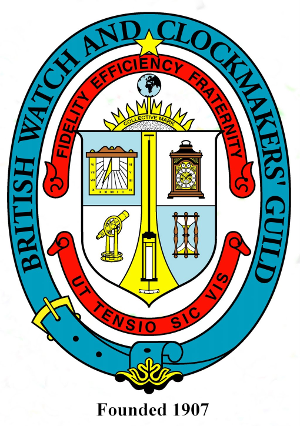NBSWCM – the trade charity providing financial help for over 200 years
As we enter 2024, with the backdrop of world unease and continuing financial difficulties, it is heart-warming to remember that many charities exist to support and assist those who find themselves in difficulty. Volunteers are still willing to offer their time to support others and the watch and clock trade is no exception.
The National Benevolent Society of Watch and Clock Makers has been providing financial help for over 200 years and continues to provide grants and gifts to those who have worked in the trade, their surviving partners and dependants who find themselves in financial difficulties, due to problems such as sickness, redundancy, or age.
Nat Ben of Yesteryear
The National Benevolent Society of Watch and Clock Makers as we know it today was formed from the amalgamation of three charities, the Benevolent Institution, the Pension Society and the Asylum (refuge or sanctuary).
1815 – The Watch and Clockmakers’ Benevolent Institution
The origins of the watch and clock trade charity go back as far as 1815 with the founding of The Watch and Clockmakers’ Benevolent Institution. It was established by employers at a time when the state of the trade was very poor, with many examples of hardship amongst those employed in the watch and clock industry and little help was available to workers suffering financial difficulty. Clerkenwell, the centre of the industry, saw great suffering and charitable help was essential. The Benevolent Institution was progressive in its approach and provided annual pensions for men £12.12 shillings (2024 equivalent £1,395*) and women £8.8 shillings (2024 equivalent £967*).
Subscriptions to the Benevolent Institution were £1.1 shilling per annum and although the subscription list was fairly modest, it provided much needed support to members of the trade during tough times.
1817 – The Watch and Clockmakers’ Pension Society
Following in the trailblazing footsteps of the Benevolent Institution, a newly formed Society, The Watch and Clockmakers’ Pension Society was founded in 1817. With an annual subscription of 4 shillings (around a penny a week), the Pension Society sought contributions from workers in the trade. This relatively affordable subscription made the Pension Society extremely popular and with an annual pension of £21 (2024 equivalent £2,254*) for men and £13.13 shillings a year for women (2024 equivalent £1,449*) they provided much needed support.
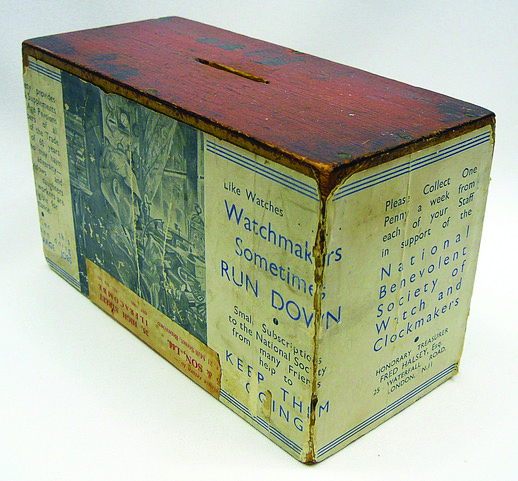
1854 – The Clock and Watchmakers Asylum
Further innovation arrived in the form of The Clock and Watchmakers Asylum, which offered more than just a pension, it also provided cutting-edge cottages, the first ‘trade’ alms-houses to be built in this country. Being well designed and attractive they were instantly popular, and the provision of light, fuel and medical attendance added to their desirability. Built in country surroundings at New Southgate, bordering the, then well known, Arnos Estate, the 24 alms-houses were much sought after until the introduction of state pensions. The Asylum additionally provided pensions of £24 per annum (2024 equivalent £3,334*) for men and £15 (2024 equivalent £2,084*) for women. The provision of housing and a pension meant that the higher annual subscription of 5 shillings was acceptable to many, and the Asylum was very successful in supporting countless trade members over the years.
1864 – William Rowlands Charity
The Asylum benefited greatly from the philanthropic support of William Rowlands, Master of the Worshipful Company of Clockmakers in 1860 and 1867. Believing profoundly in the importance of the alms-houses and pensions provided to beneficiaries, William Rowlands presented the Worshipful Company, under trust, the sum of £1,000 (2024 equivalent £159,258*) in a bond, bearing interest at 6%, with the proceeds to be used for the benefit of the residents of the alms-houses at New Southgate. This legacy underpinned the finances of the Asylum charity and has continued to provide support to many hundreds of beneficiaries over the years.
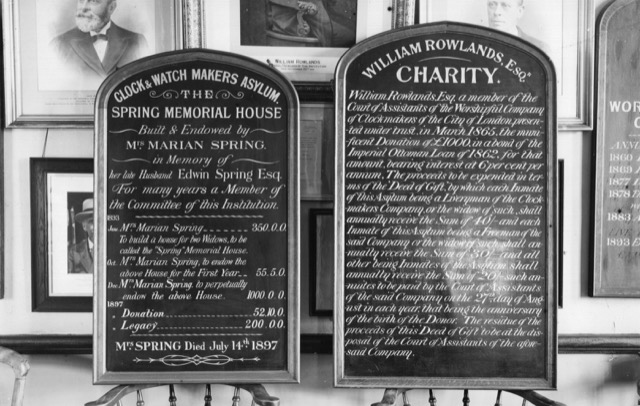
1916 – Amalgamation of the Benevolent, Pension and Asylum Charities
During the dark days of WWI, the long-anticipated amalgamation of the Benevolent, Pension and Asylum charities was finally undertaken. With like minded aims and serving the same trade, it was agreed that combining funds and pensioners would be the way forward. The total of 43 pensioners and collective funds of nearly £20,000 (2024 equivalent £2,180,209*) were therefore brought together under the new charity name The National Benevolent Society of Watch and Clock Makers.
1930s – collecting donations
Historically, the National Association of Goldsmiths would allow a collection to be made at their annual conferences resulting in kind contributions to the Society’s funds. At one of these meetings, it was suggested that collecting boxes should be placed in jewellers, for donations from ‘no charge’ jobs, and this resulted in a large income for many years. Recently a collecting box from the 1930s was unearthed, when items from a closed jewellery shop were put up for auction. The auctioneers kindly contacted the Secretary of the Society and have provided images of the box. There was still money inside which, along with an additional kind donation from the auctioneers, will be used to assist beneficiaries.
1940s – supporting watch and clock makers countrywide
By the 1940s the Society was supporting pensioners from all areas of the UK, and numbering over 100 pensioners there was a move towards broadening the distribution of funds, including occasional Christmas gifts and exceptional individual payments made to applicants who were not eligible for pensions.
Nat Ben Benefactors Past and Present
The founder members of the original charities were connected to the high-class horological work being produced in Clerkenwell at the time. Names such as William Rowlands, Richard Cole, Brothers Woodman, J A Clemence, J Vine, W Haswell, WM Anthony, Thomas Baxter and J Walton, were well known in the trade and many of their descendants continued to serve on the committee into the 1940s. The Goldsmiths and Clockmakers Companies were central to the ongoing work of the Society; the Clockmakers having two representative trustees on the committee and the Master remaining President of the Society, reinforcing the close bond that the Company has with their work.
Many associations and individuals have also given their support to their trade charity. For many years the Society had ‘Subscribers’, individuals who paid regular small amounts to aid the charity. In exchange for their contributions, they were allocated votes in the ‘election’ of
pensioners.
Throughout the days it was active, the British Horological Federation championed the work of the Society, with representative trustees on the committee and members providing valuable support. The British Horological Institute continues to provide a representative trustee on the committee to support the work of the charity and when dissolved, the Horological Sports Association presented the proceeds from the sale of their trophies to the Society. Alongside a representative trustee on the committee, invaluable assistance has also been provided over many years by the British Watch and Clock Makers’ Guild, and its members, including donations and assistance with the identification of potential beneficiaries.
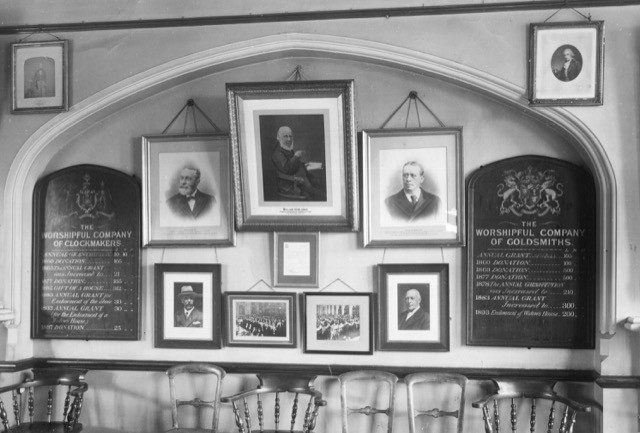
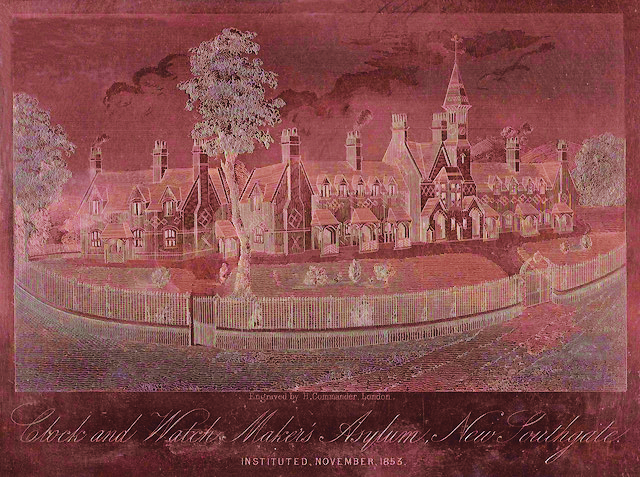
Nat Ben today
The needs of beneficiaries have changed over the years and the Society has moved with the times, away from ownership of alms-houses and pensions, towards a more flexible method of assisting larger numbers of recipients, paying qualifying beneficiaries quarterly grants and gifts,
almost entirely from the income from investments. The focus has shifted from just the watch or clock maker at their bench, to encompass all who work, or worked within any area of the trade. It has been many decades since there was an inequality in payments between men and women and the Society is here to support all qualifying trade members who need financial assistance.
The current application process is designed to be as straightforward as possible with applicants completing a simple form, which is available from the Secretary. All applications are treated in strict confidence and decisions made on an individual basis. Payments, usually quarterly, are made at the discretion of the committee of trustees and do not affect the individual’s right to state benefits.
The knowledgeable committee are all volunteers, consisting of independent trustees, including representatives from the material houses and appointed trustees from the Worshipful Company of Clockmakers, British Horological Institute and the British Watch and Clock Makers’ Guild; all give their time and energies in a united effort to assist others in their trade. Actively searching for those in need, they carry on the work of the philanthropic horological pioneers, who took the first steps to help their employees and colleagues.
The Society has supported thousands of beneficiaries over the years and
continues to search for those who need financial help so if you, or someone you know, needs assistance, please contact
the Secretary:
Telephone: 020 8288 9559
Email: sec@nbswcm.org
Web: nbswcm.org
*All equivalent values are approximate.
